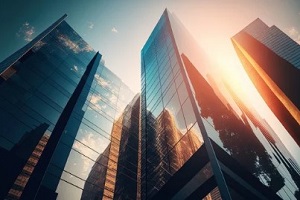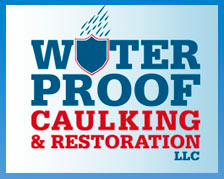 Commercial buildings in Delaware are exposed to harsh weather year-round. From the beating rays of the sun to the densely packed mounds of snow in the winter, structures need to be carefully maintained in order to stand up to everything that Mother Nature has to offer.
Commercial buildings in Delaware are exposed to harsh weather year-round. From the beating rays of the sun to the densely packed mounds of snow in the winter, structures need to be carefully maintained in order to stand up to everything that Mother Nature has to offer.
Commercial waterproofing is a useful tool to boost the lifespan of a commercial building, and it offers more benefits than many property owners realize. Here are three of the primary reasons to waterproof your Delaware commercial building, saving you money and time in repairs and building usability.
What Is Waterproofing?
The process of waterproofing might seem self-explanatory—simply apply a film that blocks water. However, the reality is much more nuanced. Waterproofing involves using a film, spray or other coating to change how a material interacts with water. The right type of waterproofing will depend on the material from which your commercial building is made; in Delaware, masonry such as brick and stone is fairly common.
For commercial masonry application, experts will often choose waterproofing options that have deep penetration capabilities so that the film fully coats the uneven, textured surface of the masonry material. However, a building’s ideal waterproofing mechanism will be unique to that building, which is why it is smart to consult with experts about how to tackle waterproofing for your commercial building.
But, why bother waterproofing at all? Moisture can do more damage than you may realize. In addition, the process of waterproofing can boost the longevity of a building and reduce utility bills at the same time.
Waterproofing Creates Moisture Escape Routes
Most people assume that waterproofing creates a perfectly impenetrable barrier through which water cannot pass. However, this is only partially true. Good waterproofing is breathable; otherwise, moisture in the interior of a building would never be able to escape and would cause problems of its own.
Breathable waterproofing creates escape routes through which existing moisture and vapor can exit the building. This prevents humidity from building up behind interior walls, which is a frequent cause of mold and mildew.
Many commercial buildings are built with either wood or steel framing. Moisture that cannot escape from wooden areas will eventually cause rot, which may result in partial or total collapse of the framing structure. Similarly, moistened steel will rust over time, posing a threat to its integrity. By waterproofing a commercial building, the moisture is given the ability to escape without harming other components.
Water is in itself hazardous. If it penetrates masonry and freezes, it can expand and create cracks or gaps that worsen over time.
Waterproofing Adds UV Resistance
Waterproofing does more for a building than simply managing how water and moisture are handled. It can also boost a structure’s UV resistance by virtue of completely coating and penetrating the exterior material. Over time, ultraviolet rays from the sun can weaken many types of building materials.
Concrete, for example, is held together by tightly bonded polymers, which is what makes it so strong. When these bonded chains are exposed to UV rays, they begin to break down, albeit slowly. This is what causes the seemingly spontaneous formation of fine, chalky dust on concrete which may result in cracks.
Waterproofing creates an extra line of defense against these UV rays so that your Delaware commercial building lasts longer and experiences fewer structural issues.
Waterproofing Boosts Energy Efficiency
Have you ever noticed that stepping outside with wet hands or hair often leads to feeling cold, even if the weather is warm? This is because moisture is an excellent thermal exchanger. This principle works the same way in commercial buildings. If moisture has penetrated the structure, external temperatures have an easier time infiltrating, and internal temperatures may escape through moist pathways in the walls.
Waterproofing stops this transfer of heat by eliminating the moisture, thus keeping outdoor temperatures out and indoor ambient temperatures in. This means you will spend less on energy bills trying to compensate for the constant leaching of ideal ambient temperatures. Over time, waterproofing will create a noticeable effect on a building’s monthly utility use, saving money in addition to its role of keeping water out.
Get Commercial Waterproofing from the Experts
Waterproofing is a critical but often overlooked element of caring for a building over time. These are just a few of the most notable reasons for commercial waterproofing. If you have decided that this project is right for your structure, be sure to leave the task to the experts to ensure that it is done right and with the correct waterproofing method.
The experts at Waterproof Caulking & Restoration have waterproofed commercial structures across Delaware and are ready to help with yours. Contact us to discuss your goals or to learn more about the waterproofing methods we trust.
